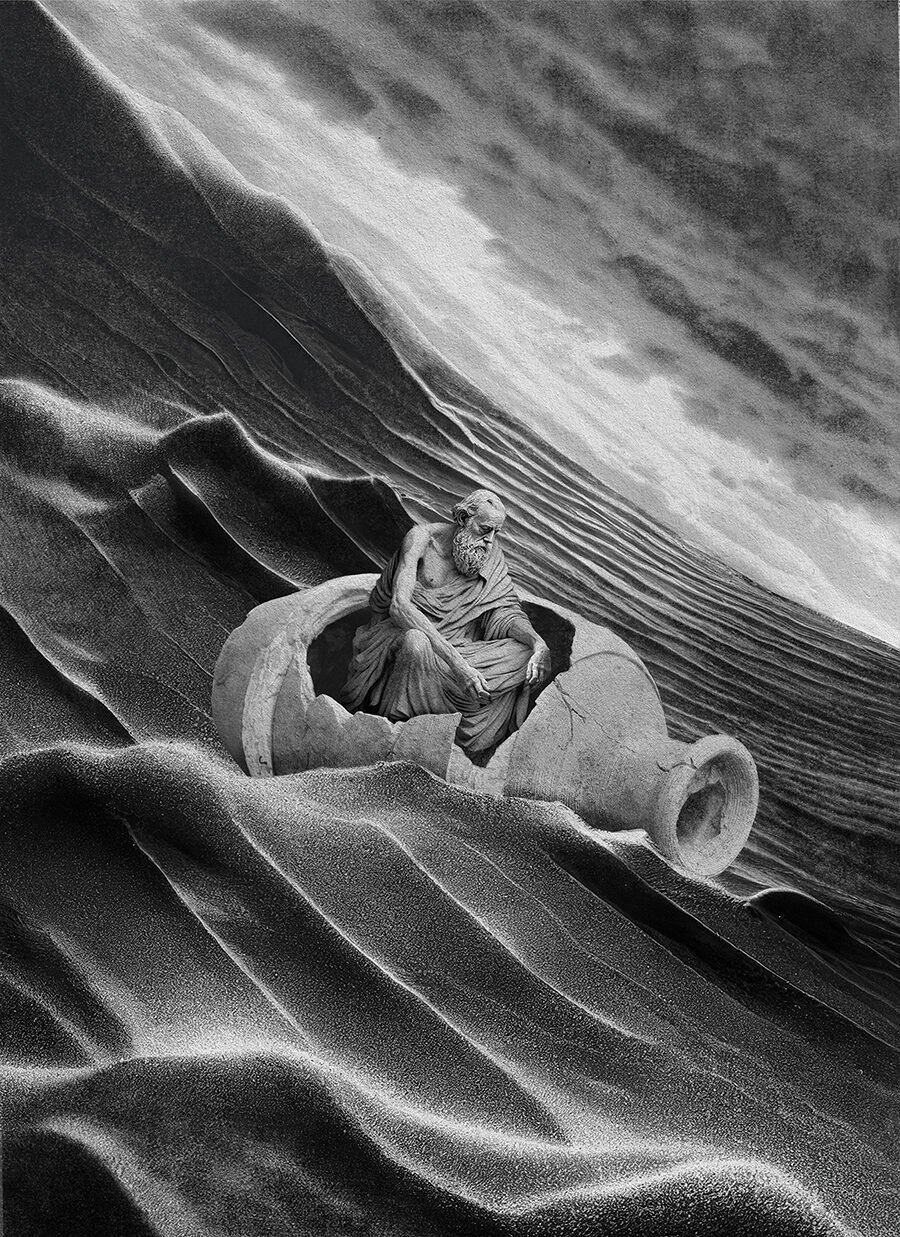
Illustrations by Zach Meyer
Discussed in this essay:
Meditations, by Marcus Aurelius, translated from the Greek by Martin Hammond. Penguin Classics. 304 pages. $11.
The morning after my father’s death, two years ago now, I was sitting in my office writing emails to people who’d known and loved him. My daughter was in her bedroom, on Zoom, in the middle of COVID kindergarten. Her bedroom is next to my office; I could hear every word she was saying, just as I can hear every word she’s saying right now. I stopped typing when her teacher, whom we’d emailed with the news,…




















































































